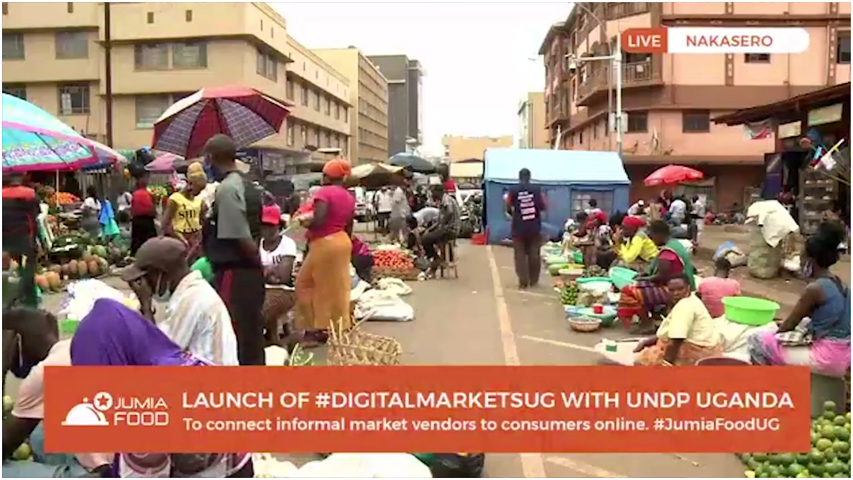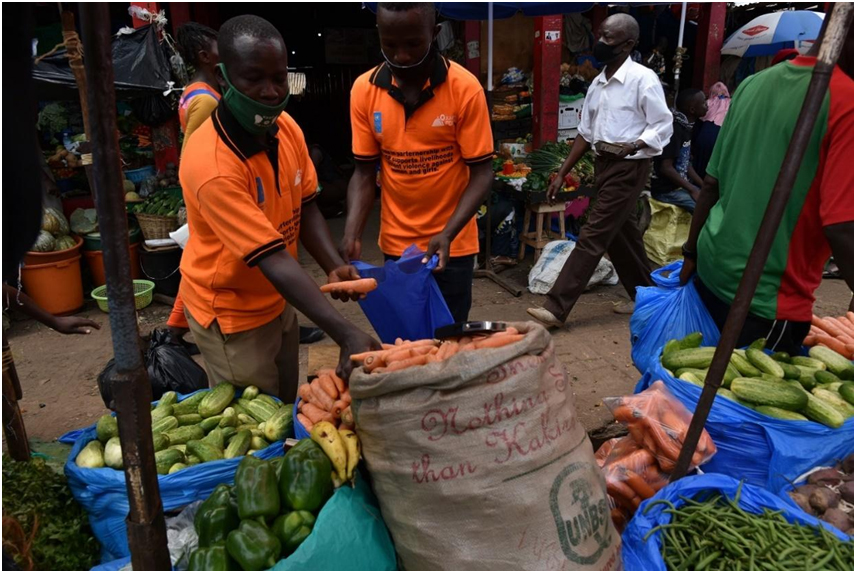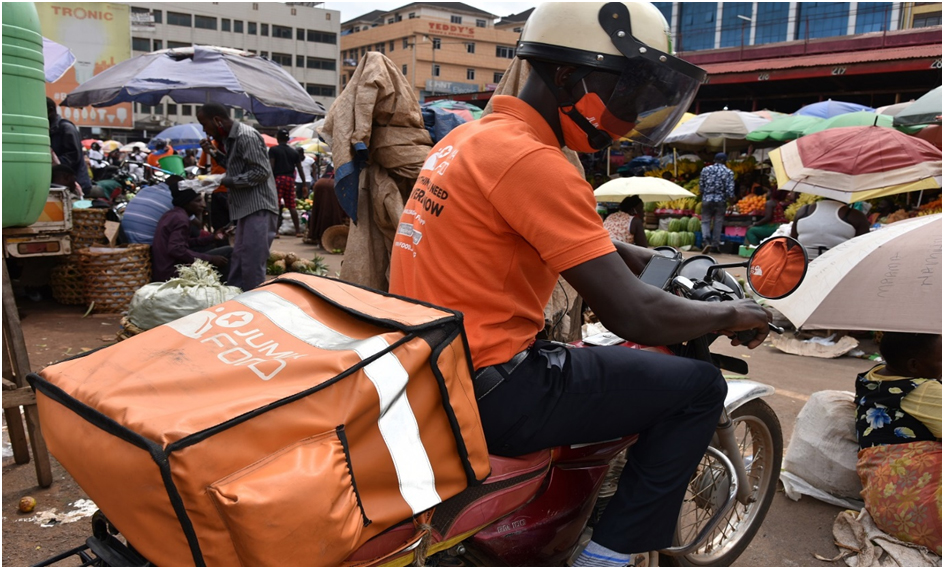 E-commerce to Support Informal Market Vendors
Development of an online platform to connect informal micro, small and medium enterprises and consumers in Uganda
E-commerce to Support Informal Market Vendors
Development of an online platform to connect informal micro, small and medium enterprises and consumers in Uganda

Challenges
New constraints to business continuity and food supplies brought by the COVID-19 pandemic have been felt in both formal and informal supply chains worldwide, impacting businesses and consumers alike. In particular, sales activities have often been restricted to contact-reduced delivery channels, due to the physical distancing, restricted movement and lockdown measures taking place in many countries.
These challenges have affected Uganda, where the informal sector constitutes 75 percent of total employment and hosts 85 percent of working women and 92 percent of the youth workforce. Due to the ongoing crisis, informal market vendors (notably women and youth) have been forced to adapt, suspend their operations or go out of business and lose their livelihoods.
Towards a Solution
Digital commerce has proven it can meet people’s needs and protect livelihoods during widespread sanitary crises. In partnership with Jumia Uganda, the United Nations Development Programme (UNDP) Accelerator Lab experimented with an online delivery platform that harnesses technology to link informal vendors (notably women, youth and persons with disabilities) with customers who cannot easily move around to purchase goods from markets in Kampala, Uganda. Based on its experience and infrastructure in such fields as mobile money transactions and distribution networks, the African e-commerce firm Jumia prototyped an online purchase and delivery platform on a small scale for two markets in Kampala (Nakasero and Nakawa). The dedicated online ordering platform relies on a last-mile distribution network and a diverse set of payment methods and comprises quality assurance, training of vendors and growth marketing.
The model employs market agents who validate the goods and services for quality and hygiene before they are dispatched, and motorcycle riders are trained to provide safe and contactless deliveries. Consumers have the option of giving feedback on their level of satisfaction with both the products and the service through the dedicated application. The platform allows market vendors to reach a large segment of customers that might never have reached and to track their daily sales. Early indicators show that the platform has significantly incremented vendor daily sales, thanks to increased interactions with customers online.
Mobile phones, airtime and data services have been provided to the vendors by UNDP as catalytic support. The UNDP Uganda Accelerator Lab now offers an opportunity to enhance the model in the face of the COVID-19 crisis. In fact, the analytics from this partnership will be used to scale the offer to different customer segments and other regions beyond the Ugandan capital city (where seven markets and 3,000 vendors already use the platform) and to come up with more production in various sectors.
The project helped the informal sector and small to medium enterprises in Uganda continue operating and reach customers during the COVID-19 pandemic. It helped reduced congestion in and traffic jams around markets, thus diminishing the risk of spreading the virus and increasing the convenience of shopping and connected rural farmers with urban markets, keeping supply chains for agricultural produce active and providing employment, thus mitigating the effects of the COVID-19 crisis on the economy.
At the macro level, ongoing collaboration with Uganda’s Ministry of Trade, Industry and Cooperatives has the potential to unlock regional-scale trade opportunities and ensuing South-South linkages, in line with the ministry’s core mandate of accelerating industrial development, promoting exports and supporting the eventual realization of the African Continental Free Trade Area (AfCFTA).
The initiative benefited from stimulating South-South exchanges on the role of e-commerce as a transformative digital technology with countries like Côte d’Ivoire, Ghana, Kenya, Namibia, Niger and Nigeria. With support from the UNDP Regional Bureau for Africa, plans are in place to develop a regional framework and roll out this solution in some of the countries that already have a Jumia presence. Internationally, the initiative has also been shared with the governments of Cambodia and Honduras.
Contact Information
Countries involved
Supported by
Implementing Entities
Project Status
Project Period
URL of the practice
Primary SDG
Secondary SDGs
Similar Solutions
| NAME OF SOLUTION | Countries | SDG | Project Status | |
|---|---|---|---|---|
Accelerator Labs Network Following collective intelligence methods to address emerging sustainability challenges and the growing demand for local solutions |
Cambodia, Côte D'Ivoire, Ghana, Honduras, Kenya, Namibia, Niger, Nigeria, Uganda | 08 - Decent Work and Economic Growth 13 - Climate Action | Ongoing | View Details |
Accessibility of Financial Services and the Private Sector in Africa Maximizing the impact of financial cooperation on economic development and industrialization in Africa |
Cambodia, Côte D'Ivoire, Ghana, Honduras, Kenya, Namibia, Niger, Nigeria, Uganda | 08 - Decent Work and Economic Growth | Completed | View Details |
Accessibility ToolKit Promoting accessibility as a cornerstone for inclusive digital development in Bangladesh. |
Cambodia, Côte D'Ivoire, Ghana, Honduras, Kenya, Namibia, Niger, Nigeria, Uganda | 08 - Decent Work and Economic Growth | Completed | View Details |
Accessible Digital Textbooks Promoting inclusive education through Accessible Digital Textbooks |
Cambodia, Côte D'Ivoire, Ghana, Honduras, Kenya, Namibia, Niger, Nigeria, Uganda | 10 - Reduced Inequalities | Completed | View Details |
ACP Business-friendly Supporting business-friendly and inclusive national and regional policies, and strengthening productive capabilities and value chains |
Cambodia, Côte D'Ivoire, Ghana, Honduras, Kenya, Namibia, Niger, Nigeria, Uganda | 08 - Decent Work and Economic Growth 17 - Partnerships for the Goals | Ongoing | View Details |


